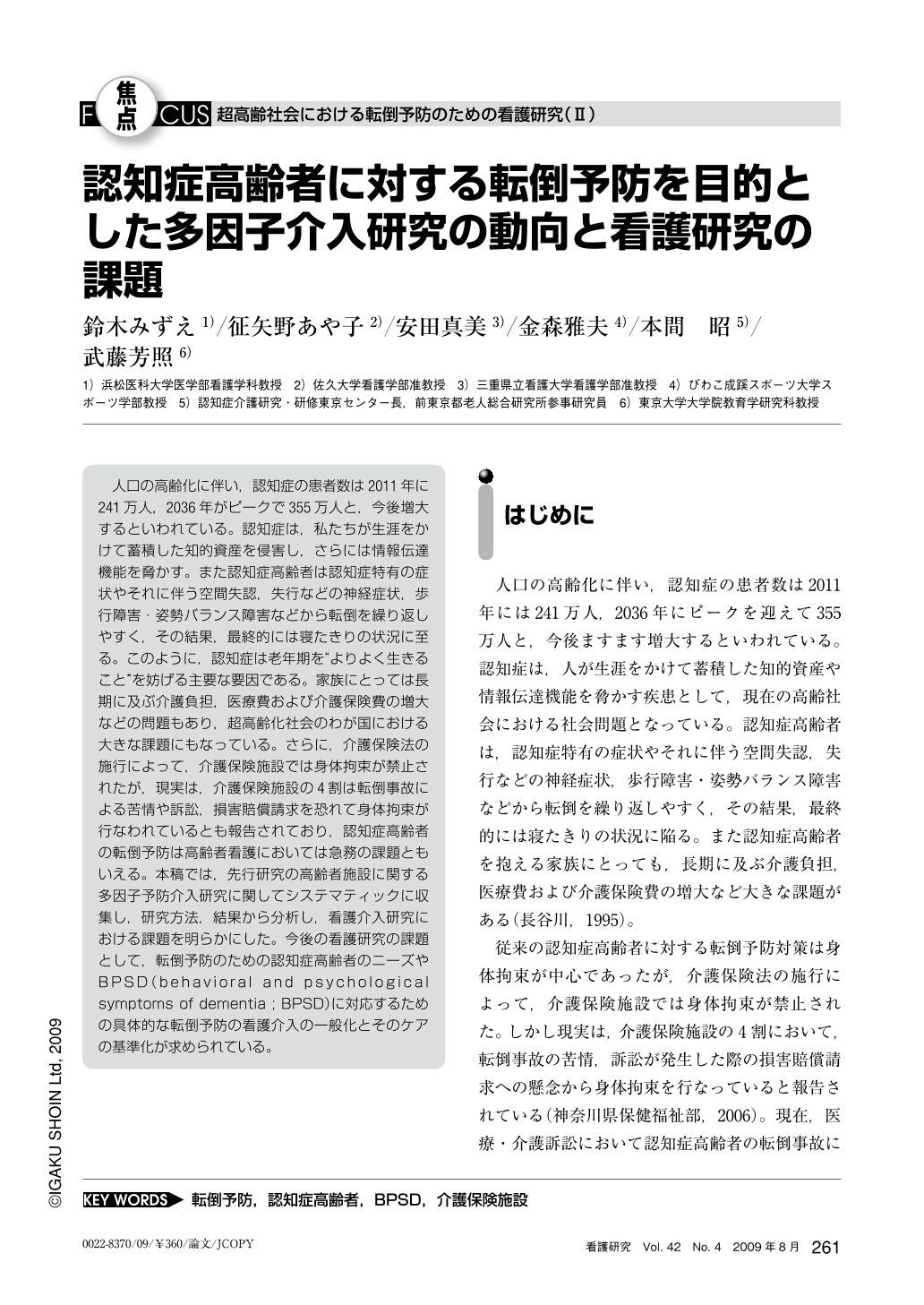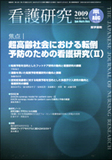Japanese
English
- 有料閲覧
- Abstract 文献概要
- 1ページ目 Look Inside
- 参考文献 Reference
- サイト内被引用 Cited by
人口の高齢化に伴い,認知症の患者数は2011年に241万人,2036年がピークで355万人と,今後増大するといわれている。認知症は,私たちが生涯をかけて蓄積した知的資産を侵害し,さらには情報伝達機能を脅かす。また認知症高齢者は認知症特有の症状やそれに伴う空間失認,失行などの神経症状,歩行障害・姿勢バランス障害などから転倒を繰り返しやすく,その結果,最終的には寝たきりの状況に至る。このように,認知症は老年期を“よりよく生きること”を妨げる主要な要因である。家族にとっては長期に及ぶ介護負担,医療費および介護保険費の増大などの問題もあり,超高齢化社会のわが国における大きな課題にもなっている。さらに,介護保険法の施行によって,介護保険施設では身体拘束が禁止されたが,現実は,介護保険施設の4割は転倒事故による苦情や訴訟,損害賠償請求を恐れて身体拘束が行なわれているとも報告されており,認知症高齢者の転倒予防は高齢者看護においては急務の課題ともいえる。本稿では,先行研究の高齢者施設に関する多因子予防介入研究に関してシステマティックに収集し,研究方法,結果から分析し,看護介入研究における課題を明らかにした。今後の看護研究の課題として,転倒予防のための認知症高齢者のニーズやBPSD(behavioral and psychological symptoms of dementia ; BPSD)に対応するための具体的な転倒予防の看護介入の一般化とそのケアの基準化が求められている。
As the population ages, the number of patients suffering dementia in Japan is expected to grow, to 2.41 million by 2011 and a peak of 3.55 million in 2036. Dementia impairs the intellectual assets that the patient has accumulated over a lifetime and damages their ability to communicate information. Elderly patients with dementia are vulnerable to repeated falls due to the specific symptoms of dementia, spatial agnosia accompanying this condition, apraxia and other nervous disorders, difficulty walking, and impaired balance. As a result, they often end up bedridden. Dementia is thus a major factor thwarting the ability of the elderly to “live even better lives” in their senior years. This is a major issue for a super-aging society like Japan, where the prolonged long-term care burden, medical expenses, and long-term care insurance fees are growing. The Long-Term Care Insurance Law prohibits long-term care facilities from using body restrains, but about 40% of such facilities are reported to use them anyway due to their fear of complaints, lawsuits, and claims for damages related to falling accidents. With regard to the falling accidents suffered by elderly patients with dementia as the subject of medical or long-term care litigation, preventing falls among the elderly with dementia is an issue that urgently needs to be addressed in the geriatric nursing. A fall prevention multi-factor intervention for the elderly with dementia was conducted in this study in order to analyze this research method and clarify problems in nursing intervention research. The present findings demonstrate the need to implement a general, standardized nursing intervention for fall prevention among the elderly with behavioral and psychological symptoms of dementia.

Copyright © 2009, Igaku-Shoin Ltd. All rights reserved.


